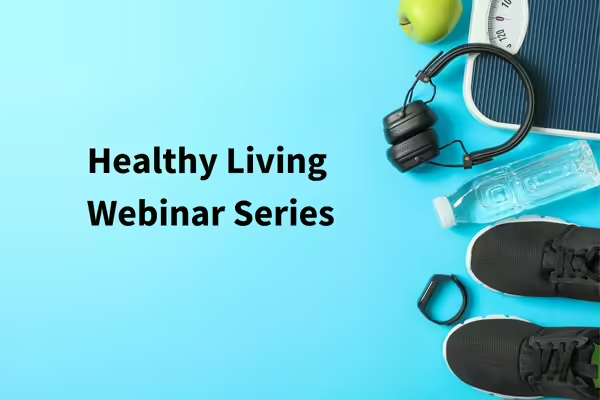
FREEPORT, ILL.---The new year is fast approaching, and many of us are looking for opportunities to improve our health in the coming year. Whether you are looking to increase your minutes of physical activity, consume more fruits and vegetables, get better quality of sleep, or simply manage the everyday stresses of life better, the new year is a great time to embrace and implement new skills and set goals to help you live a healthier life.
To help meet your health improvement goals, University of Illinois Extension will be offering the Healthy Living Webinar Series in January. Webinars will be held on Thursday evenings, January 9, 16 and 23, from 6 to 8 p.m.. Topics include:
The Weight Equation: An Introduction to Weight Management - January 9
Establishing and maintaining a healthy body weight is not just about following a diet plan or being active. It is a culmination of all of our daily choices, those that are made consistently over time. In essence, it is a reflection of our lifestyle. Our lifestyle involves healthy eating patterns, regular physical activity, stress management, and quality sleep. All of these health behaviors work together to impact health and prevent illness.
During this webinar, we will discuss reasons for weight gain, how weight is assessed, the benefits of losing and maintaining a healthy body weight, and offer tips to promote weight loss.
Understanding Emotional Eating: How Stress Impacts Hunger & Appetite - January 16
Believe it or not, we do not always eat to satisfy our physical hunger. Many of us turn to food for any number of reasons. Perhaps we are looking for comfort or feeling stressed and overwhelmed with life. Eating when we are not truly physically hungry can lead to unintentional weight gain, heartburn, and even impact our ability to get a good night’s rest. If you find yourself eating for reasons other than physical hunger, this online session could be for you.
During this webinar, we will increase your awareness of how emotions and stress affect eating habits, increase your ability to identify emotional triggers leading to emotional eating and provide helpful steps to reach your wellness goals.
Move More for Better Health - January 23
Physical activity is a cornerstone for wellness and significantly improves overall health. Yet, only one in four adults meet the physical activity recommendations for aerobic and muscle-strengthening activities, which increases their risk of developing chronic health conditions.
During this webinar, you will learn the difference between physical activity and exercise, the recommended amount and types of physical activity, and the importance of staying active as you age. You will also learn about how aging impacts your ability to engage in physical activity, the risks associated with a sedentary lifestyle, the importance of setting goals, and resources you can access at home to help you stay active.
Register for the Healthy Living Webinar Series by calling the Extension office at (815) 235-4125 or online at https://go.illinois.edu/Healthy-Living-Webinars. There is a $5 fee, for each webinar, pre-registration is required.
University of Illinois Extension develops educational programs, extends knowledge, and builds partnerships to support people, communities, and their environments as part of the state's land-grant institution. Extension serves as the leading public outreach effort for University of Illinois Urbana-Champaign and the College of Agricultural, Consumer and Environmental Sciences in all 102 Illinois counties through a network of 27 multi-county units and over 700 staff statewide. Extension’s mission is responsive to eight strategic priorities — community, economy, environment, food and agriculture, health, partnerships, technology and discovery, and workforce excellence — that are served through six program areas — 4-H youth development, agriculture and agribusiness, community and economic development, family and consumer science, integrated health disparities, and natural resources, environment, and energy.